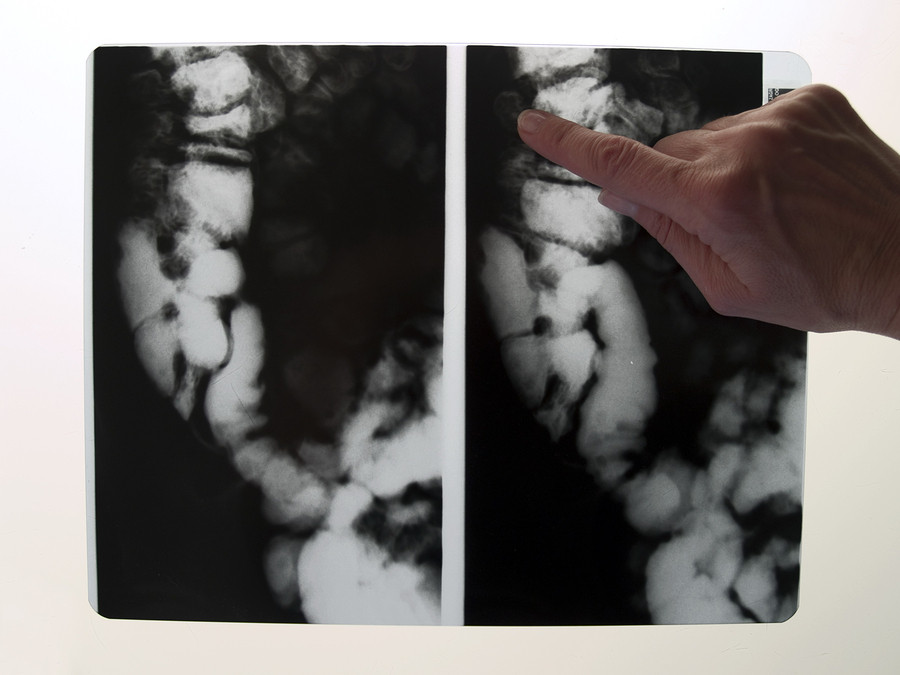
What are somatic workouts?

How to curb your stress eating

How to spot Parkinson’s disease symptoms

8 simple ways to reduce ultra-processed foods in your diet

Heart failure symptoms in women: How they’re different

GERD diet: Foods to avoid to reduce acid reflux

Strong is the new skinny

Everyday habits that sneakily weaken your bones

Don’t wait to get help for back pain

Correcting how you walk may ease osteoarthritis knee pain
Understanding the results of your colonoscopy

Colon cancer is among the most common – and preventable – cancers: about 140,000 people are diagnosed with colon cancer each year in the US and more than 50,000 people die of the disease annually. This makes it the 2nd leading cause of cancer-related death in the US.
So, you should be familiar with colonoscopy (if you aren't already). That's the test during which a doctor places a flexible tube through the rectum into the colon to look for polyps, tumors or other problems. As awful as it may sound, it's usually well-tolerated: you're sedated for the procedure and often people don't even remember having it. We're lucky to have such a good screening test for colon cancer - colonoscopy can not only detect tumors while they're curable, but it can identify precancerous polyps which can be removed before they become cancerous.
For people at average risk of colon cancer, colonoscopy is usually recommended as a screening test at age 50 (or age 45, according to the American Cancer Society). It should be repeated every 10 years thereafter until age 75. It is often recommended for younger people or more frequently for those who notice blood in their stool, have unexplained anemia or a change in bowel habits, have a strong family history of colon cancer or other risk factors for the disease.
While the test does come with some risks (such as pain, bleeding or even perforation), serious complications are quite rare. Despite the compelling evidence of the benefits and low risk of the procedure, only 2/3 of eligible adults in the US have the test.
What will you learn?
Much is written about "the prep" for colonoscopy (to clean out the colon so that its interior can be clearly viewed) and the procedure itself, but less is written about what the results may mean. As a screening test, it's usually done to find colon cancer or precancerous polyps. But, often neither is found; instead, other, potentially confusing or surprising findings may be discovered.
Here's a primer on what your colonoscopy may reveal:
- Normal findings – This is what everyone hopes to hear! If no abnormalities are discovered, an adult at average risk of colon cancer is generally advised to have a repeat colonoscopy 10 years until age 75.
- Hemorrhoids – These are clumps of veins near the surface of the lining of the rectum. While they may cause pain, itching or bleeding (especially when they swell or "flare up"), they often cause no trouble at all. When they do cause symptoms, they're usually more of an annoyance than a danger. Fortunately, swelling of hemorrhoids can often be prevented and effectively treated.
- Diverticular disease – This term refers to the presence of outpouchings in the colon where a weakness in the muscular wall bulges outward. Although about half of adults have them, most cause no symptoms or problems. When they do cause trouble – bleeding or infection with inflammation (diverticulitis) – prompt treatment is usually effective. Perforation, in which diverticulitis causes a tear or hole in the colon, is the most serious complication; surgery may be necessary.
- Colonic polyps – These are outgrowth of tissue from the lining of the colon. There are two kinds of polyps:
- Benign – These do not become cancerous and include "hyperplastic" and "inflammatory" polyps that usually require no treatment.
- Neoplastic – These include adenocarcinoma (colon cancer) and adenomas, which are precancerous. The more adenomas you have and the larger they are, the higher the risk that one or more of them contains cancerous tissue or will develop into colon cancer.
While small polyps can often be removed during colonoscopy, larger ones may require surgery. Risk factors for colon polyps are similar to those for colon cancer, including advanced age, family history of polyps or cancer, a diet high in red meat, or a history of inflammatory bowel disease.
- Inflammation and ulceration – The lining of the colon can be irritated, inflamed and ulcerated for many reasons, including infection, medications (such as non-steroidal anti-inflammatory drugs, or NSAIDs), inflammatory bowel disease (such as Crohn's disease and ulcerative colitis) and cancer.
- Bleeding – Sometimes there is blood in seen in the colon; a search for source may identify a tumor, an ulcer or an abnormal collection of blood vessels (called an arteriovenous malformation, or AVM) but often a source cannot be identified during a colonoscopy and additional tests may be necessary.
Other, less common findings include a "foreign body" (such as when a child swallows a toy) or a fistula (an abnormal connection between the colon and another part of the intestinal tract or other organ).
When are the results available?
Some of the findings of a colonoscopy are known right away. For example, if everything appears normal and no biopsies are taken, the doctor can tell you right away that the colonoscopy was normal. If a polyp is removed or a sample of the colon lining is removed (a colonic biopsy), it may take a few days (or more) to find out that cancer, an adenoma or another finding was discovered. Since a sedative is usually given before a colonoscopy, results may be provided in writing and discussed later, when you're more awake and alert.
The bottom line
If your doctor recommends a colonoscopy, talk about the risks and benefits of the test, how to prepare for it, how it's done and what the results may mean. While other tests are available to screen for colon cancer, they have significant limitations compared with colonoscopy.
The vast majority of people who have colonoscopy say that worrying about it and taking the laxatives beforehand are the worst parts. Considering all of the information this test can provide and how it can actually prevent colon cancer (by removal of precancerous polyps), it's among the very best screening tests we have.
Disclaimer:
As a service to our readers, Harvard Health Publishing provides access to our library of archived content. Please note the date of last review or update on all articles.
No content on this site, regardless of date, should ever be used as a substitute for direct medical advice from your doctor or other qualified clinician.

What are somatic workouts?

How to curb your stress eating

How to spot Parkinson’s disease symptoms

8 simple ways to reduce ultra-processed foods in your diet

Heart failure symptoms in women: How they’re different

GERD diet: Foods to avoid to reduce acid reflux

Strong is the new skinny

Everyday habits that sneakily weaken your bones

Don’t wait to get help for back pain

Correcting how you walk may ease osteoarthritis knee pain
Free Healthbeat Signup
Get the latest in health news delivered to your inbox!
Sign Up




